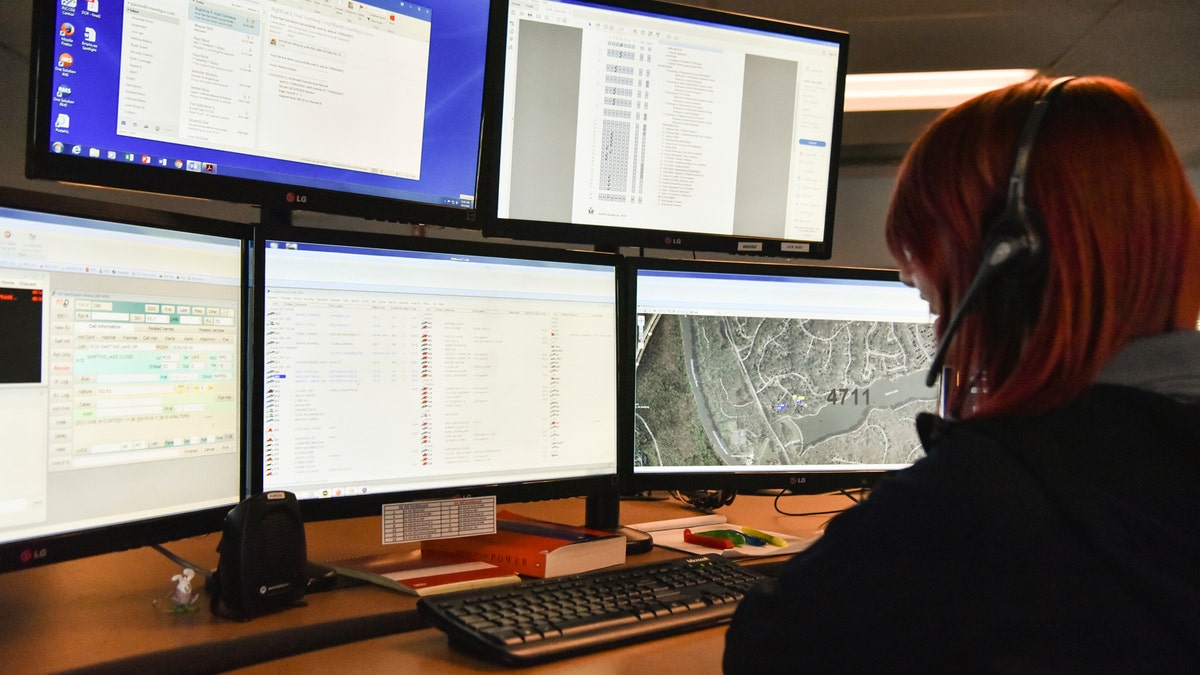
A 911 dispatcher in Roswell, Ga., works with a variety of screens while handling a call, March 15, 2018. (Associated Press)
Cities across the U.S. are struggling to find 911 dispatchers as a historically tight labor market makes it harder to fill a job that was already a tough sell.
Dispatchers are a linchpin of the nation’s emergency-response infrastructure. Their responses to 911 calls directly impact how quickly police, firefighters and other first responders are sent to help and whether they go to the right place.
They are also hard to hire, since the job can require workers to make snap judgments on life-or-death situations, often based on incomplete information, for about what they could make working as a manager at a retail store.
With the U.S. jobless rate currently at 3.9%, just above the 18-year low of 3.8% it reached in May, a daunting situation for emergency call centers has turned urgent.
“For a lot of them, the requirement is, ‘We need a warm body’,” said Christy Williams, director of 911 for the North Central Texas Council of Governments. The problem is exacerbated because many 911 centers are small and lack the resources to pay up for workers or training.
The Cowlitz County 911 Center in Washington is trying to hire six new dispatchers, said its director, Deanna Wells. In the meantime, the center’s 16 current dispatchers are working more than 200 hours of overtime a month.









































